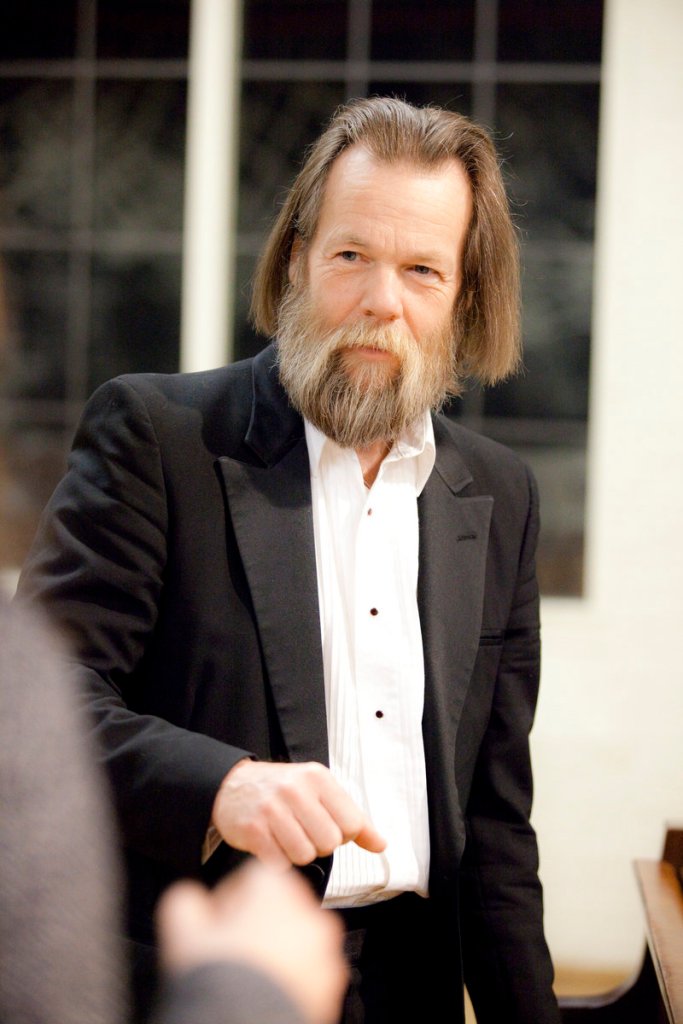The Oratorio Chorale, under Peter Frewen, is always pushing the envelope. The opening concert of their 2012-2013 season, Saturday night at the Orion Center for the Performing Arts, was no exception, featuring Schubert’s gigantic Mass No. 6 in E-flat Major with an expanded Maine Chamber Ensemble.
The program began with three religious works by Mozart, ranging from the deceptively simple to the ultimate in counterpoint: the early “Sancta Maria, mater Dei,” the complex “Misericordia Domini,” and the familiar “Ave verum corpus,” all beautifully sung and accompanied. The delineation of fugal voices in the “Misericordia,” which alternates between joy and sorrow, was particularly impressive.
Mozart’s “Eine kleine Nachtmusik” is one of those works that is so familiar that it’s rarely heard live, which is a shame, since it deserves its popularity. The Maine Chamber Ensemble, conducted by Frewen, gave it a fine, lively rendition, while the size of the orchestra emphasized its intimate nature. (It probably would have been played behind a curtain at an aristocratic soiree.)
The first two works on the program, however, were primarily an appetizer for the Schubert Mass No. 6, written during the last months of his short life. (He died of syphilis at the age of 31.)
Traditional in form, with considerable fugal writing to conclude most sections, the Mass relies primarily upon tonal color to create the appropriate emotional response in the worshipper. It is fierce, sorrowful, reverent and joyful in turn, but never sentimental. The power of the orchestra and chorus was revealed almost immediately in a fortissimo passage during the Kyrie, which also demonstrated a fine balance of forces.
This balance was not always maintained throughout the lengthy performance, primarily because of the size of the orchestra, but was generally very good. Even Schubert must have bemoaned the scarcity of basses in church choirs, since he gives them all the help he can with trombones and other deep bass instruments reinforcing their parts.
Where other composers have emphasized the quiet coming of the spirit in the Benedictus, Schubert turns it into a march, which is surprising at first but soon seems inevitable. The Credo includes a waltz, another pleasant surprise.
The weakest parts of the performance were the solos, trios and quartets. With some notable exceptions, the voices, while perfect in the chorus, were not quite strong enough to soar over the orchestra as they should. Still, the overall effect was glorious.
Christopher Hyde’s Classical Beat column appears in the Maine Sunday Telegram. He can be reached at:
classbeat@netscape.net.
Send questions/comments to the editors.



Success. Please wait for the page to reload. If the page does not reload within 5 seconds, please refresh the page.
Enter your email and password to access comments.
Hi, to comment on stories you must . This profile is in addition to your subscription and website login.
Already have a commenting profile? .
Invalid username/password.
Please check your email to confirm and complete your registration.
Only subscribers are eligible to post comments. Please subscribe or login first for digital access. Here’s why.
Use the form below to reset your password. When you've submitted your account email, we will send an email with a reset code.